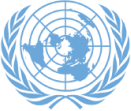SEVENTY FIRST SESSION OF THE UN GENERAL ASSEMBLY
SECOND COMMITTEE (General debate)
3 October 2016
New York
STATEMENT BY H.E. MR. SUKHBOLD SUKHEE, AMBASSADOR EXTRAORDINARY AND PLENIPOTENTIARY AND PERMANENT REPRESENTATIVE OF MONGOLIA TO THE UNITED NATIONS
Mr. Chairman,
At the outset, allow me the opportunity to extend our warmest congratulations to you Mr. Chairman and the other members of the Bureau on your election. My delegation assures you of our full cooperation and steadfast support during this session of the Second Committee.
My delegation associates itself with the statements delivered by the distinguished representative of the Kingdom of Thailand on behalf of the Group of 77 and China as well as the distinguished representative of Zambia on behalf of the Group of LLDCs.
Mr. Chairman,
The Agenda 2030 for Sustainable Development that we collectively agreed a year ago provides a clear guideline for “what” we aim to achieve. The overall ambition is to end poverty and inequality, and secure a better world to our present and future generations.
At the national level, Mongolia is committed to implementing the relevant goals set forth both in the 2030 Agenda for Sustainable Development and the Vienna Program of Action. They are reflected in our national development strategy, including the Sustainable Development Vision of Mongolia 2030 and the Government’s Action Program for 2016-2020. Taken into account the concepts of the 2030 Agenda for Sustainable Development, the Parliament of Mongolia has approved the Sustainable Development Vision of Mongolia 2030, early this year. By 2030, the Development Vision envisages eradication of poverty in all its forms. The Development Vision provides specific measures to reduce income inequality and ensure citizen’s participation, human development through better quality education and health services, and ensure ecological balance and green development. It also aims to bring about a more effective and transparent governance.
Mr. Chairman,
Landlocked developing countries continue to face considerable challenges inherently linked to their geographical handicap. LLDCs are among the hardest hit by the global economic slowdown, failing commodity prices, food and energy shortages along with serious impact of climate change. In addition, LLDCs remain largely marginalized in the global economy. Their combined share in global exports stood at 1.2 percent in 2014, with commodities accounting for the bulk of exports. These challenges do not only affect economic growth, but have major implications for social and environmental aspects of development thus affecting the implementation of both the 2030 Agenda for Sustainable Development and the Vienna Programme of Action for LLDCs. Thus, my delegation is of view that there should be strong coherence between the 2030 Agenda for Sustainable Development and Vienna Programme of Action. Thus, we believe that the 2030 Agenda cannot be implemented without realising the priority goals of the Vienna Programme of Action.
Mr. Chairman,
The world has entered a new era for combating climate change. Mongolia is one of the small developing countries highly affected by global climate change. Even though Mongolia’s total emissions of greenhouse gases is very small to compare with other countries, Mongolia aims to cut emissions by 14 percent by 2030. The President of Mongolia took part in the High-Level Event on Early into Force of the Paris Agreement on Climate Change and presented the instrument of ratification of the Paris Agreement on Climate Change.
Mr. Chairman,
In closing, my delegation wishes to stress the importance of the Quadrennial Comprehensive Policy Review for 2016 to 2020 that should translate the special needs of LLDCs acknowledged in the global development frameworks into dedicated support to LLDCs from the UN development system in the implementation of Vienna Programme of Action and the 2030 Agenda for Sustainable Development.
I thank you for your attention.


